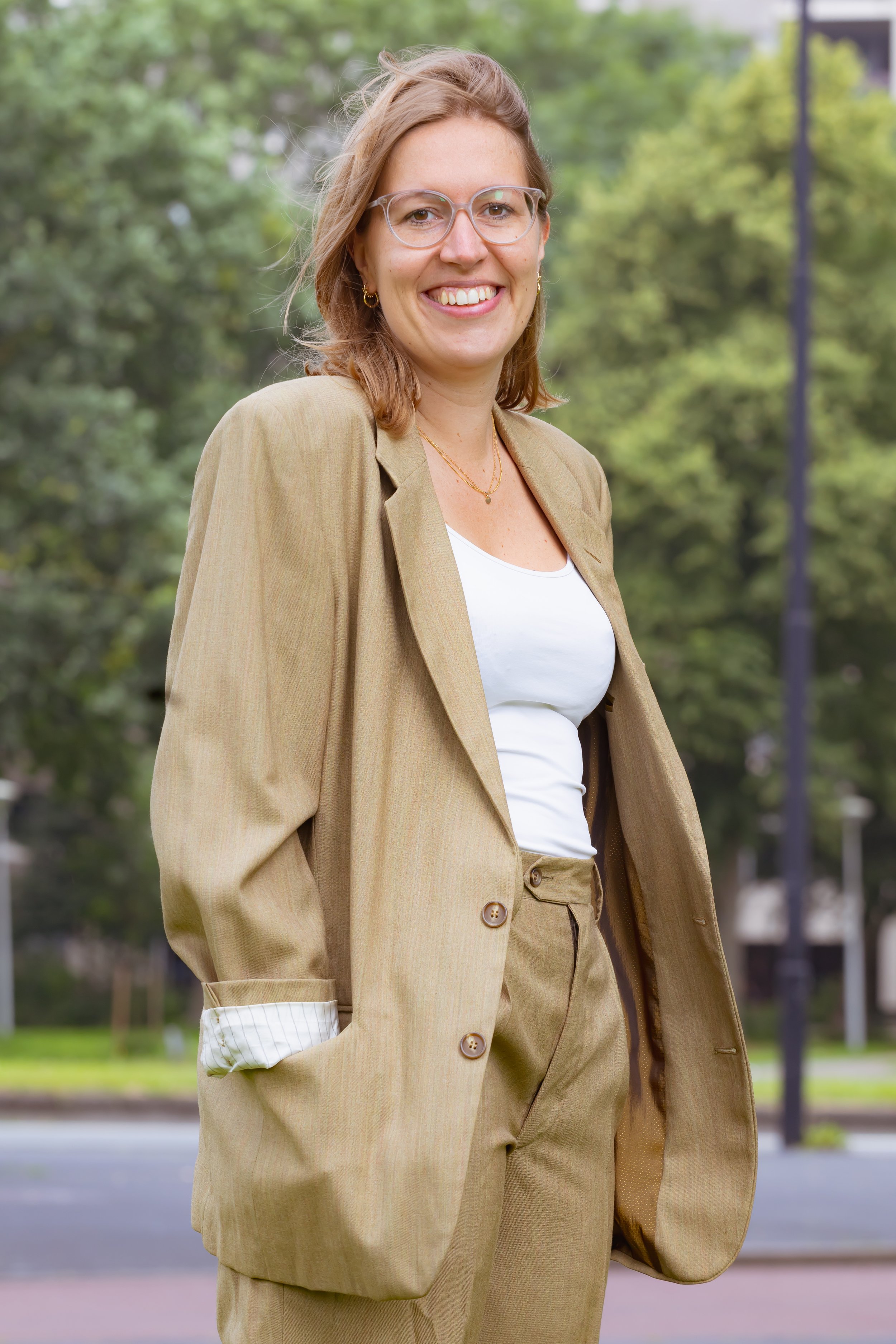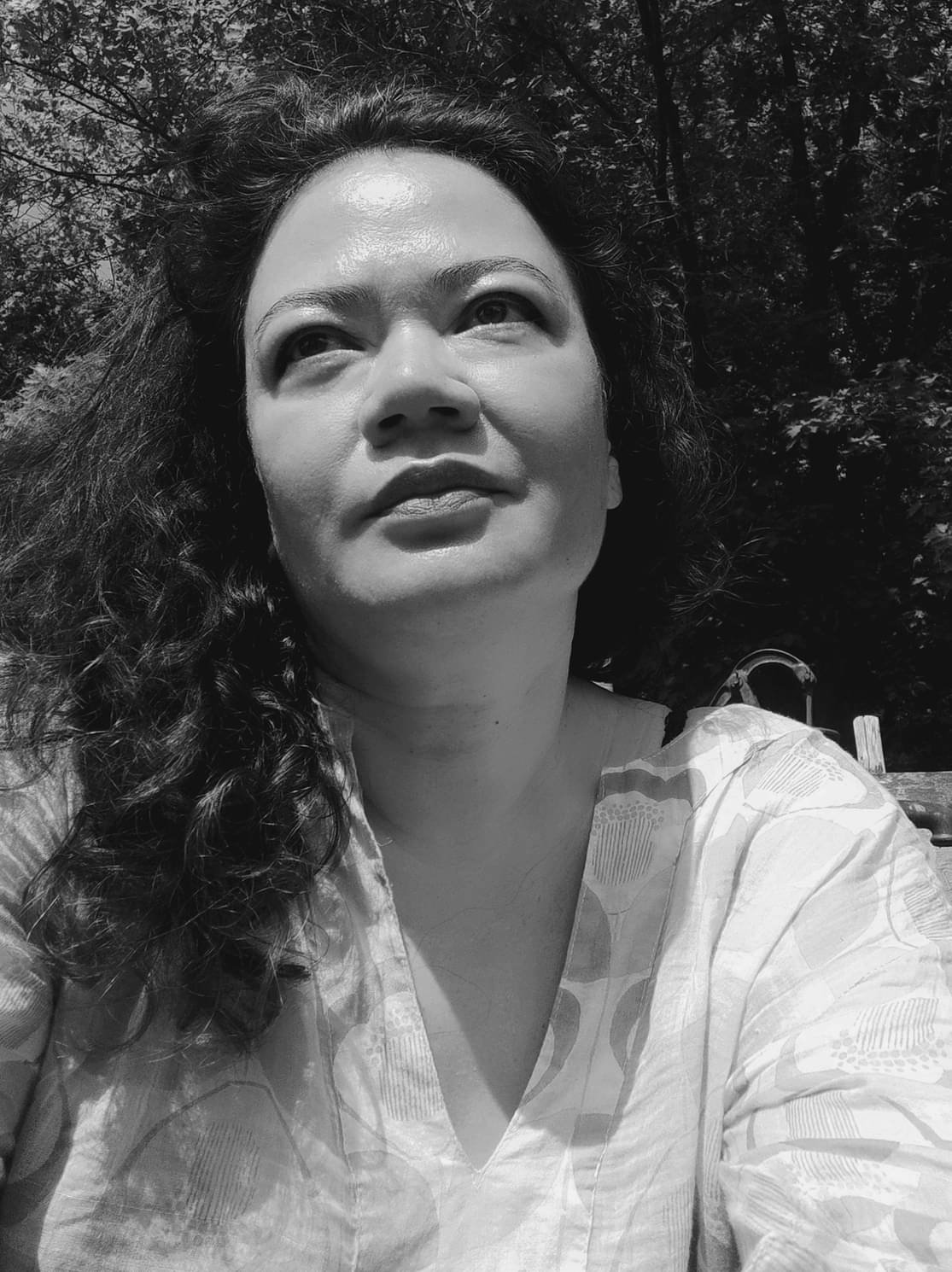Meet our Heroes at the Amsterdam Municipality and beyond!
-

Milka Yemane (GroenLinks)
“When we talk about how we want our city to be a city of and for everyone, we will only succeed if we keep talking to people and not about people, but mainly with people.
In recent years, we see that more and more people are living in poverty, unfortunately menstrual poverty is a painful part of it which also greatly increases the gender gap.
Last year, Neighborhood Feminists conducted research showing that 1 in 3 Amsterdammers have difficulty buying menstrual products, which is why we as GroenLinks, together with other parties in the council, are submitting a proposal against menstrual poverty in which we will investigate where and how to provide menstrual products for free in Amsterdam.
I am enormously looking forward to implementing this proposal together with the organisations that have been fighting for this for years.”
-
Anissa Bouhassani (PVDA)
"I think women being able to use hygienic and safe menstrual products is a basic need. It is a basic product you need like toilet paper etc, and everyone should have access to these products. Besides, there is a double taboo on menstrual poverty. People struggling with poverty already experience a threshold of shame to ask for help, and with menstruation, for some people that threshold and taboo is even higher. And you often see people who are already struggling to make ends meet, such as single mothers. They then more often choose to spend what little money they have on necessities for their children anyway."
"Therefore, I hope that this initiative proposal can make a difference, and lay a foundation from the municipality to also pay attention to this, and that we will ''normalise'' these products, and hopefully there will be less shame on the subject!”
-

Nilab Ahmadi (BIJ1)
"It is unfair that you are already 1-0 behind just because you menstruate, it is devastating for women and menstruating people in poverty that it costs so much money to get menstrual products. Besides physical damage, it deprives people of the opportunity to participate in society, and that we as a government contribute to this by not intervening in this is something I find indigestible. Equality starts with being able to participate equally, for everyone."
"It's not just important, it's vital. A quarter of respondents to the Neighborhood Feminists survey said they had had problems had had trouble being able to afford menstrual products in the past year. That means people cannot meet their basic needs, and not just any people, this problem does not affect men. It exacerbates the gap between rich and poor and makes equality between men and the rest of society even more difficult to achieve. The consequences of using menstrual products for too long can be fatal, but for young girls, for example, it also causes them to drop out of school. It creates a real disadvantage in life every month. This is relevant not only to the City of Amsterdam, but to all governments."
-

Anne Wehkamp (D66)
"Too many Amsterdammers do not have enough money to buy menstrual products. They then do not go to school, for example, or contract diseases. This week, the Amsterdam city council is discussing an initiative proposal we have submitted with a large group of parties to combat menstrual poverty in Amsterdam."
"D66 Amsterdam wants the municipality to pursue a feminist care and poverty policy. In which we have an eye for the different needs of all Amsterdammers. Tackling menstrual poverty is part of this. So that no Amsterdammer stays at home anymore because they cannot buy menstrual products."
-

Fatima Hakiki (DENK)
"Personally, I find it worrisome that many Amsterdammers cannot buy menstrual products during their periods. That is why I am glad that the municipality of Amsterdam wants to tackle this problem."
"Money problems and menstruating? No problem, you have a municipality to help you with the products"
-

Jennifer Bloemberg-Issa
"The Partij voor de Dieren has chosen to participate in the implementation of this initiative proposal for several reasons. First of all, we like to fight all forms of poverty. You hear about more and more forms of this: transport poverty, energy poverty, and now, of course, menstrual poverty. The big underlying problem is that there is a gigantic income inequality, forcing too many people to live in poverty. This problem needs to be tackled nationwide. In Amsterdam, though, we can play a big role in bringing this problem to light. In this, we are hopefully a forerunner for the rest of the country.”
“Furthermore, we believe that the availability of menstrual products should be a matter of course for everyone who needs it. If people do not have enough money to buy menstrual products, we as a municipality have a responsibility to provide them with it. However, we believe it is important to choose sustainable menstrual products that last longer and can be used more often and in more situations. Education about sustainable menstrual products should go hand in hand with this. After all, a complex problem such as (menstrual) poverty requires a sustainable solution.”
-

Tammy Sheldon (NF)
As co-founder of the intersectional feminist foundation Neighborhood Feminists, I saw a clear and unmet need for menstrual products in Amsterdam back in 2019. "Hiding in plain sight." We decided to fight against menstrual poverty. Thanks to donations, we were able to organize the direct provision of menstrual products for people with the greatest need. Despite the growth of our initiative, we can always help only a fraction of those in need.
Menstrual products remain an indispensable part of healthy menstruation. I believe tampons and sanitary pads should be freely available in all convenient locations, including public buildings, public schools and universities. In autumn 2022 the sense of urgency was reinforced by the very worrying findings of our quantitative survey on menstrual poverty in Amsterdam, a first for our city. Remarkably, 27% of those who menstruate suffered from menstrual poverty in the past year! Structural change is therefore urgently needed. This public health problem can be most effectively addressed through sustainable, needs-based solutions led by the municipality.
Menstrual poverty is unacceptable, which is why I worked with members of the city council on this initiative proposal to ensure that the significant effects of menstrual poverty we have seen in both our work and research become a thing of the past, instead of being a daily burden for far too many Amsterdammers.
The effects of poverty--and menstrual poverty in particular--have an impact on everyone in Amsterdam--not just menstruating people who are at a disadvantage. I find it scandalous that some Amsterdammers have to cut back on other basic needs like food. Menstrual poverty is certainly a public health issue but also one of equality and dignity. I believe this initiative proposal is incredibly important to strongly fight against gender inequality, but also against lower performance in school and in the workplace.
Through this initiative proposal and with careful cooperation, we can end menstrual poverty in Amsterdam. So let's do it for all Amsterdammers!


